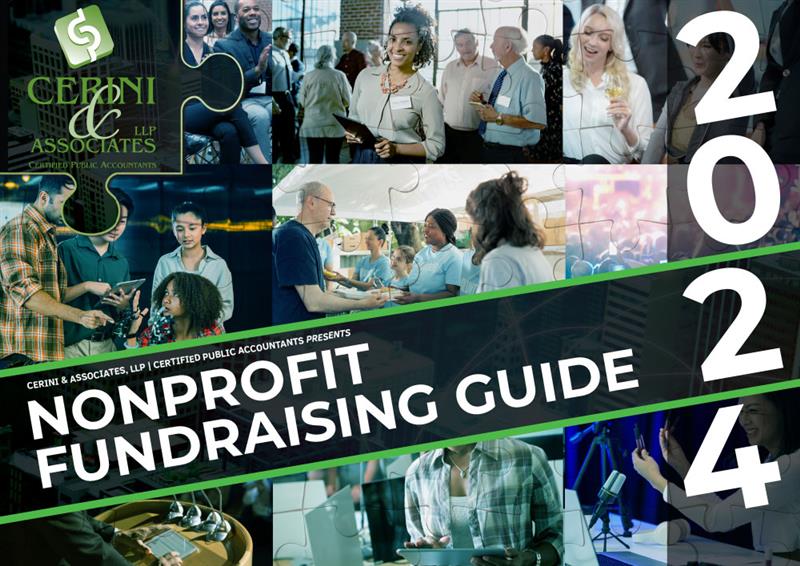The future of events is undeniably headed towards technology-aided solutions. In recent years, Artificial Intelligence (AI) has emerged as a game-changer for nonprofits, offering new opportunities and insights to optimize event planning and enhance fundraising efforts. This article will delve into the ways nonprofits can effectively utilize AI technology for event planning and fundraising and highlight key trends in the industry.
AI Trends in Event Planning:
a.) Personalized Event Experiences: AI algorithms can analyze attendee data and preferences to deliver personalized event experiences. By capturing data from previous events, nonprofit organizations can tailor future events to match attendee preferences, including session recommendations, networking opportunities, and customized agendas.
b.) Real-Time Data Insights: With AI, nonprofits can collect and analyze real-time data during events, enabling them to make data-driven decisions instantly. AI tools like CrowdRiff and Social Tables provide valuable insights on attendee engagement, sentiment analysis, and social media interactions. These insights empower nonprofits to adapt and optimize their events in real-time.
c.) Chatbots for Event Support: AI-powered chatbots are gaining traction in event management due to their ability to provide instant, personalized responses to attendees’ queries. They can handle a wide range of tasks including assisting in event registration, providing event schedules, and addressing FAQs. This 24/7 virtual support significantly enhances the attendee experience while reducing the workload on human staff.
d.) AI for Event Marketing: AI technology can also optimize marketing efforts for nonprofit events. By analyzing past marketing campaigns and attendee data, AI can predict which marketing strategies will be most effective for specific audiences. This helps nonprofits target their messages more accurately, improve conversion rates, and ultimately increase event attendance and fundraising success.
e.) Virtual Reality for Immersive Event Experiences: While not exclusively an AI technology, Virtual Reality (VR) often works in tandem with AI to create immersive event experiences. This is particularly valuable for virtual or hybrid events, where physical participation is limited. Nonprofits can use VR to give virtual tours, offer interactive experiences, or even simulate the impact of their work, creating a more engaging and memorable event for attendees.
Leveraging AI for Effective Fundraising:
a.) Donor Relationship Management: AI technology helps nonprofits manage donor relationships more efficiently. Platforms like Bloomerang and DonorSearch utilize AI algorithms to analyze donor data and provide valuable insights into giving patterns, interests, and engagement levels. This enables nonprofits to personalize communication, identify potential major donors, and build stronger relationships.
b.) Predictive Analytics: AI-powered predictive analytics enables nonprofits to forecast donor behavior and optimize fundraising strategies. By analyzing historical donor data, nonprofits can identify patterns, predict future giving trends, and segment donors effectively. This empowers nonprofits to design targeted campaigns, allocate resources strategically, and maximize fundraising potential.
c.) Chatbots for Donor Engagement: AI-powered chatbots are transforming donor engagement by providing instant, personalized support. Nonprofits can integrate chatbots into their websites or social media platforms to answer donor inquiries, provide event details, and even accept donations. Chatbots enhance donor experiences, increase engagement, and save valuable staff time.
d.) AI for Grant Writing: Artificial Intelligence can significantly improve nonprofits’ grant application process. With AI’s deep learning capabilities, programs can analyze historical grant data to predict the likelihood of securing different grants. AI can also assist in the writing process, generating compelling narratives based on data and previous successful applications.
e.) Social Media Analysis: AI-powered tools can analyze social media platforms to determine the best strategies to engage with donors. By understanding trending topics and analyzing engagement metrics, nonprofits can craft social media campaigns that resonate with potential donors, increasing visibility and attracting new supporters.
f.) AI for Fundraising Events: From setting up fundraising goals to tracking progress, AI can automate many aspects of fundraising events. It can analyze the performance of previous events to predict the most effective strategies and activities for future fundraisers. This kind of data-driven approach can significantly increase the success of fundraising events.
g.) Notetaking in Online Meetings: AI-powered tools like Fireflies.ai are transforming how nonprofits conduct and document online meetings. These tools transcribe meetings in real-time, ensuring that no critical information is missed. They can also identify key discussion points, action items, and follow-ups, making it easier for nonprofit teams to review the meeting’s content and act accordingly.
h.) Auction and Raffle Descriptions: Utilizing AI can be an innovative approach to crafting compelling auction and raffle descriptions for fundraising events. This not only saves time but also potentially increases the perceived value of the auction or raffle items, enhancing donor participation and contributions.
i.) Creative Brainstorming: AI’s predictive analysis and natural language processing capabilities can robustly assist nonprofits in brainstorming enticing titles and descriptions for sponsorship benefits as well as thought-provoking event themes. AI can analyze data from past events, understand the types of benefits that attracted the most sponsors, and then generate creative and compelling titles and descriptions that resonate with potential sponsors.
j.) Drafting Emails and Outreach Letters: Nonprofits can employ AI to craft effective emails and outreach letters. AI-powered tools can analyze historical campaign data and identify the elements that led to high open rates and engagement. From subject lines to email body content, AI can provide suggestions for creating compelling content that resonates with the target audience.
The Impact and Benefits of AI on Nonprofit Fundraising:
a.) Increased Efficiency: AI streamlines administrative tasks and automates manual processes, freeing up valuable resources and allowing nonprofits to focus on their core mission. This enhanced efficiency enables nonprofits to engage more effectively with donors, plan successful events, and allocate resources optimally.
b.) Enhanced Personalization: AI enables nonprofits to deliver personalized communication at scale. By analyzing donor data, preferences, and behavior, nonprofits can tailor messages and fundraising appeals to resonate with individual donors. This personalization strengthens donor relationships, increases engagement, and ultimately boosts fundraising outcomes.
c.) Improved Decision Making: AI-generated insights provide nonprofits with valuable data-driven decision-making capabilities. By leveraging AI algorithms and predictive analytics, nonprofits can make informed decisions about event planning, fundraising strategies, and resource allocation. This leads to more effective planning and increased ROI.
d.) Expanded Reach: AI can significantly expand the reach of non-profits, allowing them to connect with a larger and more diverse audience. By utilizing data analysis to understand and target specific demographics, AI facilitates the creation of outreach campaigns that are more effective and inclusive.
e.) Enhanced Donor Retention: AI’s ability to provide tailored engagement for individual donors can significantly boost donor retention rates. Recognizing and understanding donor preferences and behavior patterns allows for more impactful communication, increasing the likelihood of repeat donations.
f.) Real-Time Adaptability: AI’s real-time data analysis provides nonprofits with the ability to adapt their strategies instantaneously. This can be particularly useful during live events or campaigns, where immediate changes can have a significant impact on outcomes.
g.) Cost Reduction: AI automation reduces the need for manual processes, leading to significant cost savings. By automating tasks such as data entry, donor communication, and event management, nonprofits can allocate more resources to their core mission and services.
AI technology has brought about a paradigm shift in event planning and fundraising for nonprofit organizations. By embracing AI-powered event management tools and leveraging AI algorithms for donor relationship management and predictive analytics, nonprofits can optimize their fundraising efforts, streamline event planning, and achieve greater impact. The trends in AI-driven event planning, such as automation, personalization, and real-time data insights, are transforming the nonprofit sector. As nonprofits continue to harness the power of AI, they will be better equipped to adapt to changing donor expectations, engage supporters, and fulfill their missions in a more effective and efficient manner.


Darren Port, CEO & Founder
Powered By Professionals





No comment yet, add your voice below!